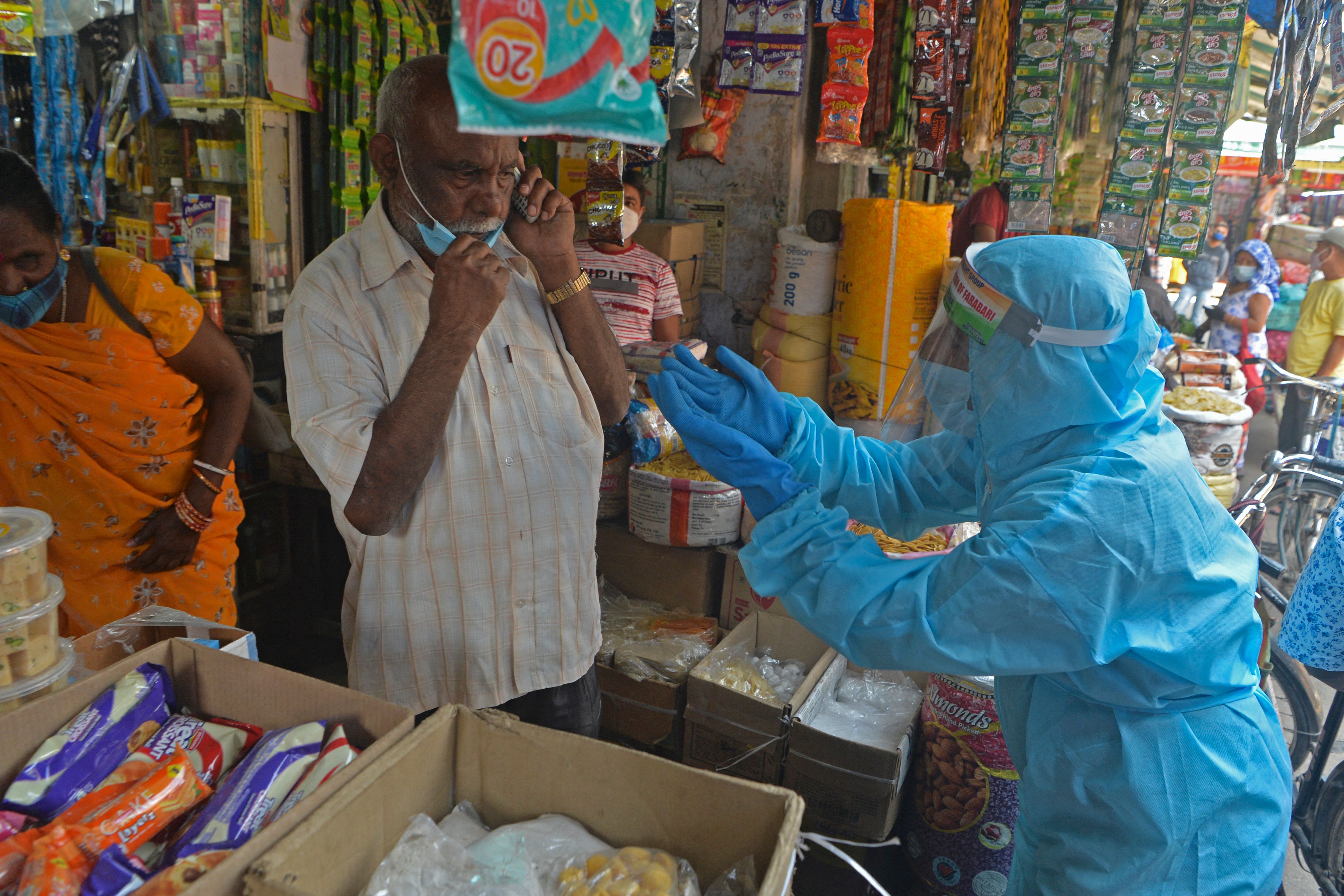US has no immediate plans to share Covid vaccines with India amid record-breaking surge
India is one of the world’s largest vaccine makers, but has struggled to maintain enough supply for its population amid a massive Covid surge

Your support helps us to tell the story
From reproductive rights to climate change to Big Tech, The Independent is on the ground when the story is developing. Whether it's investigating the financials of Elon Musk's pro-Trump PAC or producing our latest documentary, 'The A Word', which shines a light on the American women fighting for reproductive rights, we know how important it is to parse out the facts from the messaging.
At such a critical moment in US history, we need reporters on the ground. Your donation allows us to keep sending journalists to speak to both sides of the story.
The Independent is trusted by Americans across the entire political spectrum. And unlike many other quality news outlets, we choose not to lock Americans out of our reporting and analysis with paywalls. We believe quality journalism should be available to everyone, paid for by those who can afford it.
Your support makes all the difference.The US has no immediate plans to aid the Indian government and share its stockpile of vaccines, even as the country experiences a record-breaking surge and Indian hospitals are struggling to find enough beds or bottled oxygen for patients.
India announced 332,730 new coronavirus cases on Friday, the second day in a row it has set a new world record.
US officials say they aiding the Indian government’s public health agency with technical support and other assistance, but don’t have immediate plans to share extra vaccine supplies. That includes not sending doses from the US stockpile of the AstraZeneca vaccine, which is not yet approved for use in America.
America is “committed to sharing vaccine supply,” White House coronavirus coordinator Jeff Zients said at a recent briefing, though only once the country feels more secure in its own supply.
“As our confidence around our supply increases, we will explore those options,” he said.
The US has pledged up to $4 billion to Covax, the international effort to provide vaccines to low-income countries, and is in discussions to share supplies like ventilators with India. It is also part of an effort to boost vaccine manufacturing in the US, India, Japan and Australia through 2022.
“It is a dire situation that we’re trying to help in any way we can,” White House Covid adviser Dr Anthony Fauci said at Friday’s coronavirus briefing.
India is one of the world’s largest manufacturers of vaccines, but has struggled with an internal covid crisis. The country has had roughly 16 million Covid cases overall, and medical facilities have struggled with low bed space and access to bottled oxygen, while authorities have allowed massive election rallies and religious festivals to take place in recent days, including the Hindu festival of Kumbh Mela, which drew millions of people.
Experts say the country is suffering because of mixed messaging and implementation of public health initiatives around Covid, and political leaders who celebrated victory over Covid prematurely, allowing people to let their guard down.
India’s inability to provide widespread vaccination to large parts of its population also highlights the bind of many middle- and low-income countries, who could wait until as long as 2023 before achieving mass vaccination, as rich nations hoover up global vaccine supply.
In March, Indian authorities slowed vaccine exports to other nations to shore up the domestic supply.
58 low- and middle-income countries, as well as US legislators like senator Bernie Sanders, have urged pharma giants and the World Trade Organization to facilitate open-access use of patented vaccine fomulas to speed up distribution.
Join our commenting forum
Join thought-provoking conversations, follow other Independent readers and see their replies
Comments